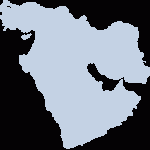
On Friday, US Secretary of State Hillary Clinton stated that Prime Minister Benjamin Netanyahu and Palestinian Authority leader Mahmoud Abbas will each meet with President Barack Obama on 1 September, with formal direct negotiations starting the following day. The Quartet (United Nations, United States, European Union and Russia) echoed Washington's invitation and said a deal could be reached within a year.
Netanyahu's office issued a statement, highlighting the significance of Israel's security institutions, "We are coming to the talks with a genuine desire to reach a peace agreement between the two peoples that will protect Israel's national security interests, foremost of which is security." Defense Minister Ehud Barak said both parties will be required to make "
courageous decisions to reach an agreement."
LATEST Israel-Palestine-Gaza Latest: Not So Fast With Those Talks?; Lebanese Aid Ship Delayed
UPDATED Israel-Palestine: US Invites Both Sides to Direct Talks on 2 September
Netanyahu has got what he wanted with direct talks without preconditions, so his welcome is understandable. On the other hand, Ramallah had been showing resistance. But why the change in position? And why now?
As a non-state organisation, the Palestine Authority's capabilities and room for manoeuvre are relatively limited. It is neither sovereign nor territorially defined and its decision-making process is more fluid, given the lack of legitimate authority both in the eyes of Palestinians and Israelis. So Ramallah's resistance, in the face of Washington's sustained efforts, was curbed.
Ramallah also faced an imminent deadline, with the Israeli moratorium on settlement expansion in West Bank ending on 26 September. Any hope of an extension rested on an apparent breakthrough, otherwise the intense conservative discourse in Israel--- "Palestinians not missing an opportunity to miss an opportunity" --- would prevail. So the Palestine Authority now seeks to consolidate the demand for a moratorium, as well as an extension of the freeze to East Jerusalem, as part of the negotations. a rule of negotiations, a sine qua non necessity legitimized in the eyes of international community.
In the end, despite the months required for the effort, Washington was able to use this leverage to get Mahmoud Abbas and his team to the table, given the limited assurances that the non-state could hope to extract. We have no idea whether President Obama
threatened sanctions against the PA and/or showed a carrot, such as a pledge that he would bring forth
his own map, based on pre-1967 borders, if Netanyahu did not produce one before the winter. However, what we know is that Washington successfully made Ramallah sit down. (On Saturday, the London-based
al-Hayat newspaper claimed that the Obama Administration gave
assurance to Abbas.)
The decision to go to Washington is strategically the least damaging option for Ramallah. Following the
conditional approval of the Arab League for the talks and the international pressure, Ramallah will not be tarred --- at least in the short term --- as the party who always misses opportunities. The Palestinian Authority will try to play the card of getting assurances over Israeli settlements for the continuation of direct talks after 26 September. Less than 24 hours of the approval, the chief Palestinian negotiator Saeb Erekat said:
It can be done in less than a year. The most important thing now is to see to it that the Israeli government refrains from settlement activities, incursions, fait accompli policies.
Given no clear timeframe, specific terms of reference, and a monitoring mechanism, Ramallah is already insisting on taking the Quartet inside the negotiation room. The PA will try to further
the Quartet's March statement, saying that talks should lead to a settlement, negotiated between the parties within 24 months, with an end to the occupation that began in 1967 and an independent, democratic, and viable Palestinian state living side-by-side in peace and security with Israel and its other neighbours. The statement also called for a freeze to settlements in the West Bank and an end to the annexation of East Jerusalem.
On Friday, the Quartet expressed
support for the pursuit of a just, lasting and comprehensive regional peace as envisaged in the Madrid terms of reference, Security Council resolutions and the Arab Peace Initiative.
So far, Israelis have not responded to this statement and it is not known if and when the Obama Administration will include the Quartet in direct talks. At the end of the day, however, given the limits of Ramallah's bargaining power, the catalyst for any advance in the talks will be the decisiveness of the Netanyahu Administration: how serious is it about reaching a deal regardless of public pressure over "non-negotiable security needs"?
 Tuesday, August 31, 2010 at 0:01
Tuesday, August 31, 2010 at 0:01  Missiles Intercepted by Cairo: Palestinian news Agency Ma'an reported on Saturday that Egyptian authorities intercepted a shipment of at least 190 anti-aircraft missiles, rockets, and other ammunition in Sinai and seized explosives and weapons in Rafah.
Missiles Intercepted by Cairo: Palestinian news Agency Ma'an reported on Saturday that Egyptian authorities intercepted a shipment of at least 190 anti-aircraft missiles, rockets, and other ammunition in Sinai and seized explosives and weapons in Rafah.



